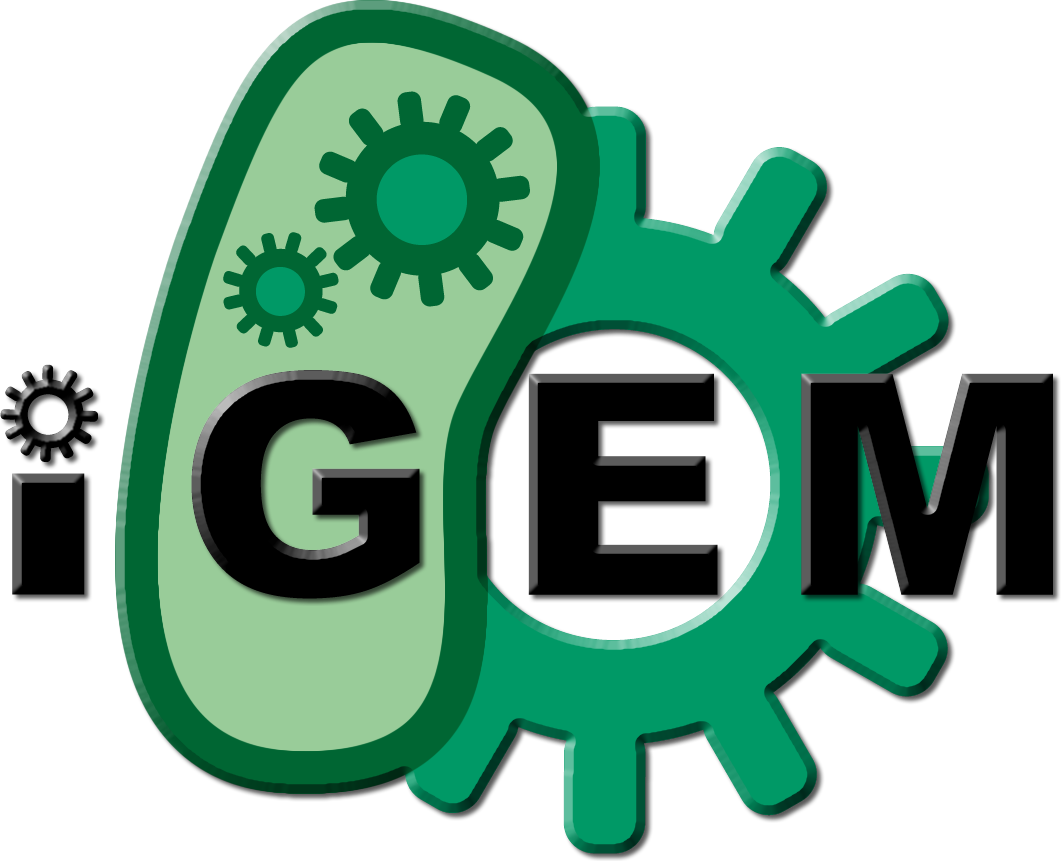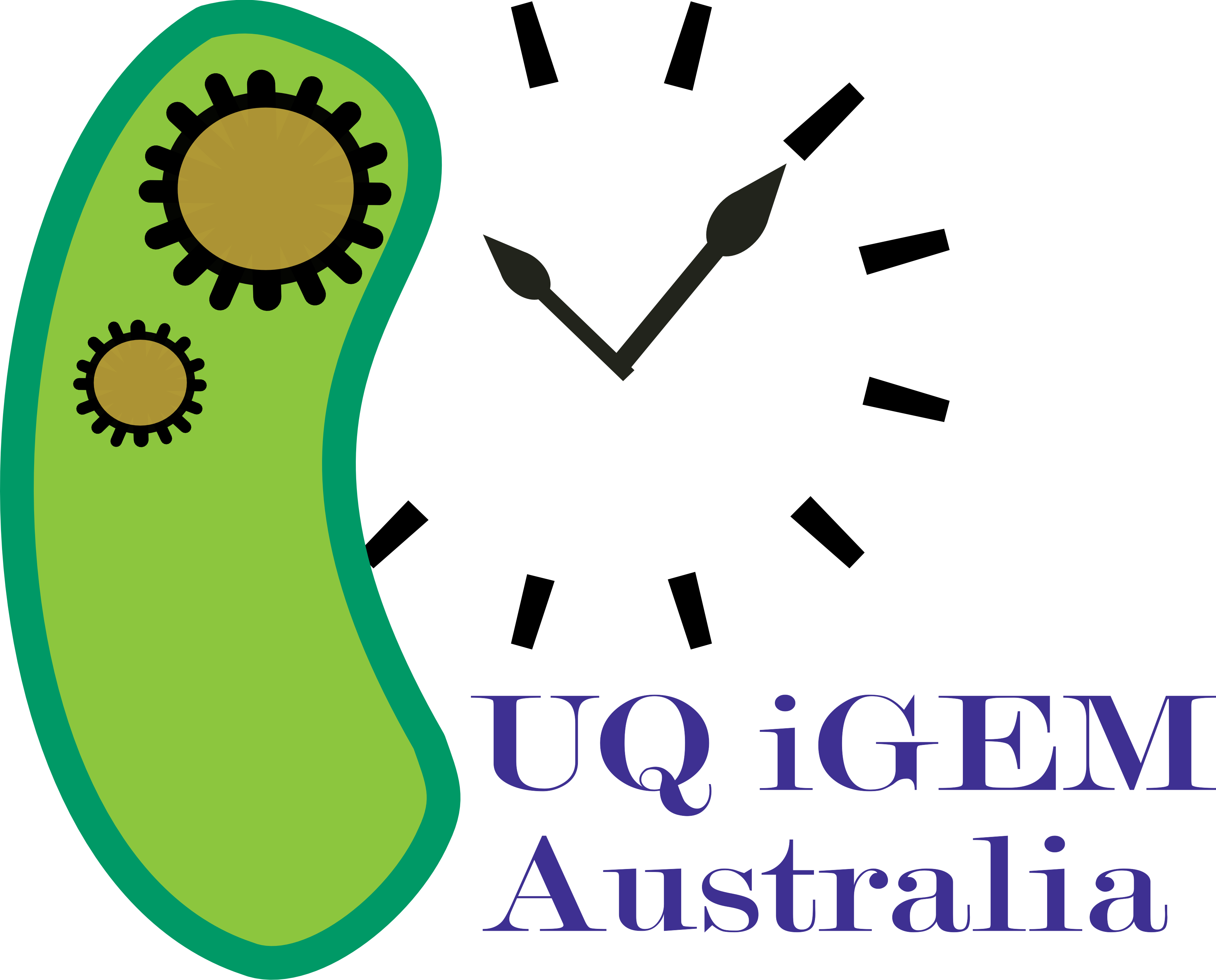Team:UQ-Australia
From 2011.igem.org
(Difference between revisions)
| (7 intermediate revisions not shown) | |||
| Line 1: | Line 1: | ||
| - | |||
{{:Team:UQ-Australia/Template:Header}} | {{:Team:UQ-Australia/Template:Header}} | ||
{|style="width:100%;" border="0" cellpadding="10" cellspacing="0" | {|style="width:100%;" border="0" cellpadding="10" cellspacing="0" | ||
|rowspan="2"|The human circadian rhythm drives many important processes in the body in accordance with the sleep/wake cycle. A characteristic of this biological clock is the periodic oscillation of gene expression. Current parts in the Registry designed to regulate periodic oscillations of gene expression have shown limited success. | |rowspan="2"|The human circadian rhythm drives many important processes in the body in accordance with the sleep/wake cycle. A characteristic of this biological clock is the periodic oscillation of gene expression. Current parts in the Registry designed to regulate periodic oscillations of gene expression have shown limited success. | ||
| - | Here we demonstrate a biological clock being standardised as a set of BioBrick parts. | + | Here we demonstrate the feasibility a biological clock being standardised as a set of BioBrick parts. |
Our network is controlled by an engineered promoter, Plac/ara, which features both an activator and a repressor domain. This controls the production of downstream genes to activate other inducible promoters, pBAD and GlnAp2, eventually leading to the production of a repressor protein, lacI, which inhibits Plac/ara, resulting in oscillatory expression. This project shows the feasibility of standardising the biological clock in E. coli and grounds further development for applications in regulated drug/hormone delivery and ion channel control. | Our network is controlled by an engineered promoter, Plac/ara, which features both an activator and a repressor domain. This controls the production of downstream genes to activate other inducible promoters, pBAD and GlnAp2, eventually leading to the production of a repressor protein, lacI, which inhibits Plac/ara, resulting in oscillatory expression. This project shows the feasibility of standardising the biological clock in E. coli and grounds further development for applications in regulated drug/hormone delivery and ion channel control. | ||
| - | + | [[File:Logo facebook.jpg|200px|link=http://www.facebook.com/UQiGEM.2011]] | |
! width="125" |[[File:IGEM basic Logo stylized.png|125x125px|link=https://2011.igem.org]] | ! width="125" |[[File:IGEM basic Logo stylized.png|125x125px|link=https://2011.igem.org]] | ||
|- | |- | ||
|[[File:UQ-Australia_logo_2011.png|125x125px|link=https://2011.igem.org/Team:UQ-Australia]] | |[[File:UQ-Australia_logo_2011.png|125x125px|link=https://2011.igem.org/Team:UQ-Australia]] | ||
|} | |} | ||
| + | |||
| + | |||
| + | '''NB: wiki best viewed on Chrome, Firefox or Safari.''' | ||
Latest revision as of 00:32, 6 October 2011
 "
"







